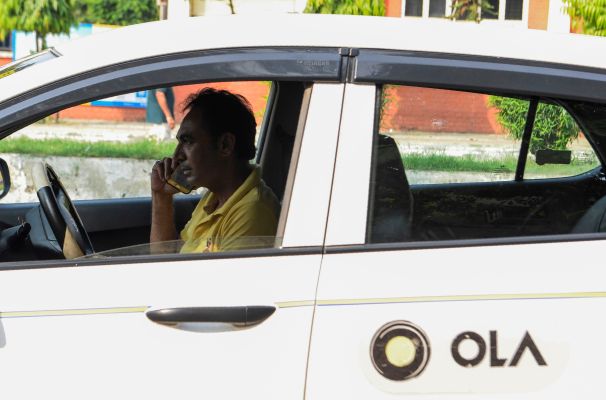Just six days after Uber won its appeal against London transportation regulators to continue operating in London for another 18 months, one of its bigger rivals has found itself in the hot seat. Ola, the India-based ride-hailing startup, is not getting its Transport for London ride-hailing license renewed, after failing to meet some of TfL’s public safety requirements specifically around licensing for drivers and vehicles.
Ola told TechCrunch it plans to appeal the decision, and as was the case with Uber, under TfL’s rules, a company is allowed to continue operating while appealing a decision.
Sky News, which had first reported the news of Ola failing to get renewed, noted that TfL said it discovered multiple failures in how Ola operates, specifically around its use of unlicensed drivers and vehicles covering more than 1,000 passenger trips, “which may have put passenger safety at risk,” according to a statement from Helen Chapman, TfL’s director of licensing, regulation and charging. It’s not clear if there were other violations involved. We have contacted TfL and will update this post as we learn more.
From what we understand, Ola plans to defend itself by claiming that the issue was partly technical: the company and TfL used different conventions in its databases to track licensing for drivers and vehicles, and Ola was not seeing licensing expirations come through in a timely enough way. The gap between having licensed and unlicensed drivers appeared to create a big enough safety issue for TfL, which it did not believe Ola was working to fix as a priority going forward. (And indeed, this also meant that Ola could conveniently continue to have those drivers, uninterrupted, on its books and working.)
As with Uber and its own run-in with TfL, Ola is already preparing to appeal TfL’s decision.
“At Ola, our core principle is to work closely, collaboratively and transparently with regulators such as TfL,” Marc Rozendal, Ola’s UK MD, said in a statement. “We have been working with TfL during the review period and have sought to provide assurances and address the issues raised in an open and transparent manner. Ola will take the opportunity to appeal this decision and in doing so, our riders and drivers can rest assured that we will continue to operate as normal, providing safe and reliable mobility for London.”
Ola — which has raised some $3.8 billion in funding over the years, partly to shore up its business to compete heavily against the likes of Uber — has been running commercial services in London since February of this year and in that time has signed up more than 25,000 drivers, the company said, but it has not disclosed how many rides it has completed, nor how many passengers it has amassed, nor any other metrics.
In addition to its own direct customers, Ola also partners with other on-demand ride services, such as Gett, as an extra capacity provider for services for Gett’s customers. It also operates in other cities in the UK, one of the SoftBank-backed company’s few big international forays outside of India (the others are Australia and New Zealand). The UK, and London specifically — even now, as many cut down their movements due to Covid-19 — represent one of the biggest and more lucrative markets in the world for ride-hailing services. But as with all ride-hailing companies, Ola’s position in the UK market is not always secured and it has made multiple efforts to plead its case with lawmakers in its time here.
[ad_2]
Source link


